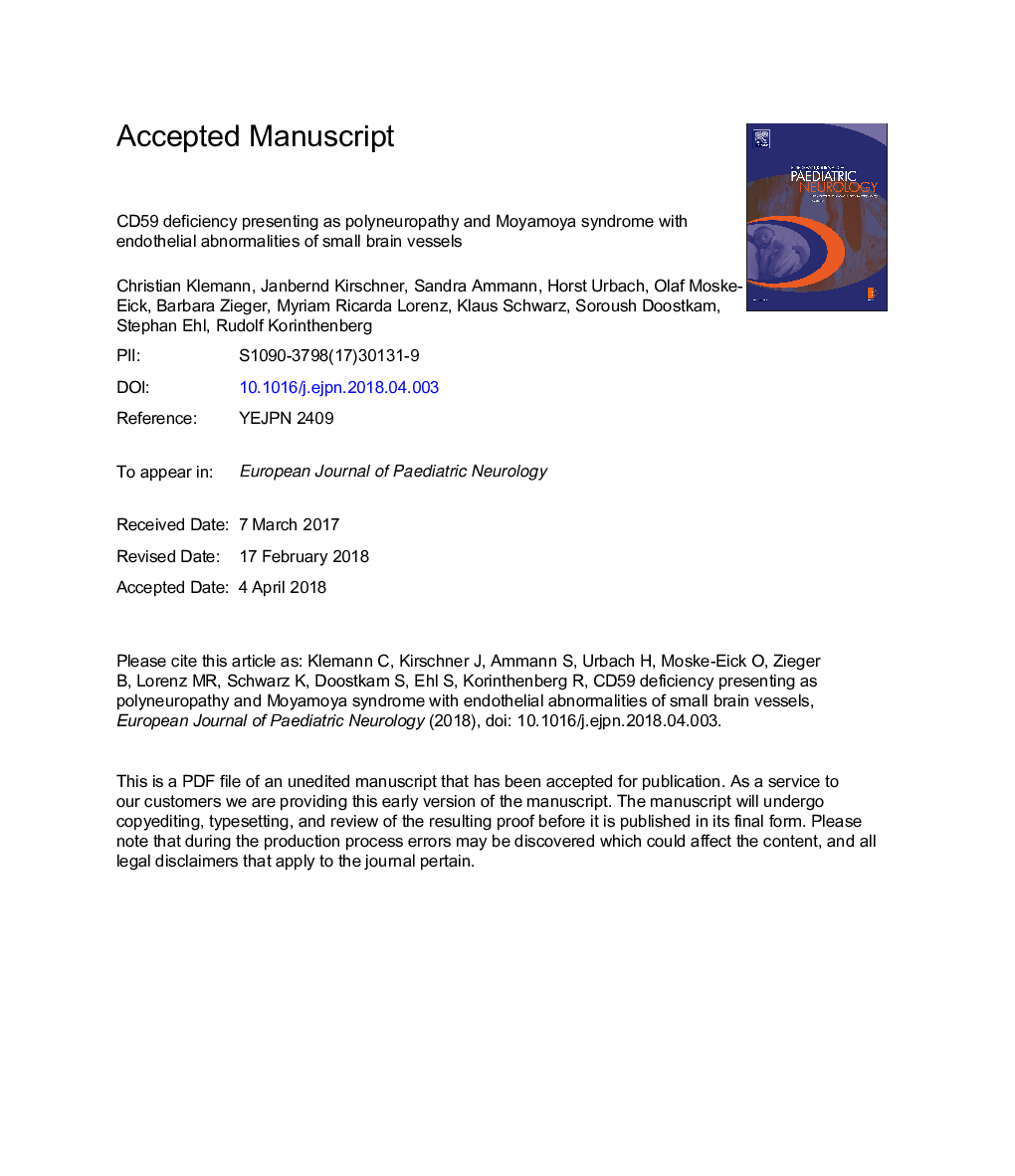| Article ID | Journal | Published Year | Pages | File Type |
|---|---|---|---|---|
| 10215417 | European Journal of Paediatric Neurology | 2018 | 19 Pages |
Abstract
CD59 is involved in lymphocyte signal transduction and regulates complement-mediated cell lysis by inhibiting the membrane attack complex. In the cases reported so far, congenital isolated CD59 deficiency was associated with recurrent episodes of hemolytic anemia, peripheral neuropathy, and strokes. Here, we report on a patient from a consanguineous Turkish family, who had a first episode of hemolytic anemia at one month of age and presented at 14 months with acute Guillain-Barré syndrome (GBS). The child suffered repeated infection-triggered relapses leading to the diagnosis of chronic inflammatory demyelinating polyneuropathy (CIDP). Although partly steroid-responsive, the polyneuropathy failed to be stabilized by a number of immunosuppressive agents. At the age of 6 years, he developed acute hemiparesis and showed progressive stenosis of proximal cerebral arteries, evolving into Moyamoya syndrome (MMS) with recurrent infarctions leading to death at 8 years of age. Post-mortem genetic analysis revealed a pathogenic p.(Asp49Valfs*31) mutation in CD59. Re-analysis of brain biopsy specimens showed absent CD59 expression and severe endothelial damage. Whereas strokes are a known feature of CD59 deficiency, MMS has not previously been described in this condition. Therefore, we conclude that in MMS combined with hemolysis or neuropathy CD59 deficiency should be considered. Establishing the diagnosis and targeted therapy with eculizumab might have prevented the lethal course in our patient.
Related Topics
Life Sciences
Neuroscience
Developmental Neuroscience
Authors
Christian Klemann, Janbernd Kirschner, Sandra Ammann, Horst Urbach, Olaf Moske-Eick, Barbara Zieger, Myriam Ricarda Lorenz, Klaus Schwarz, Soroush Doostkam, Stephan Ehl, Rudolf Korinthenberg,
